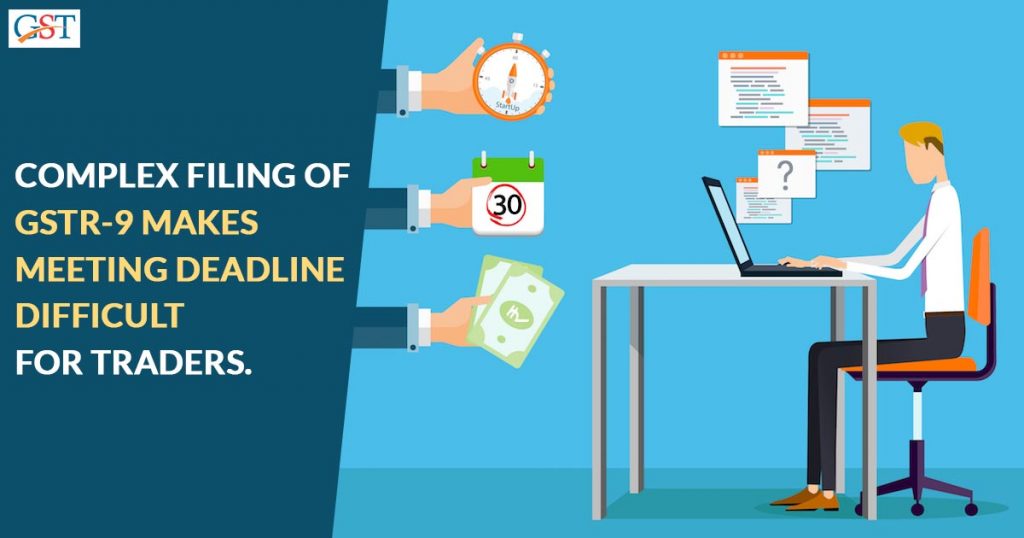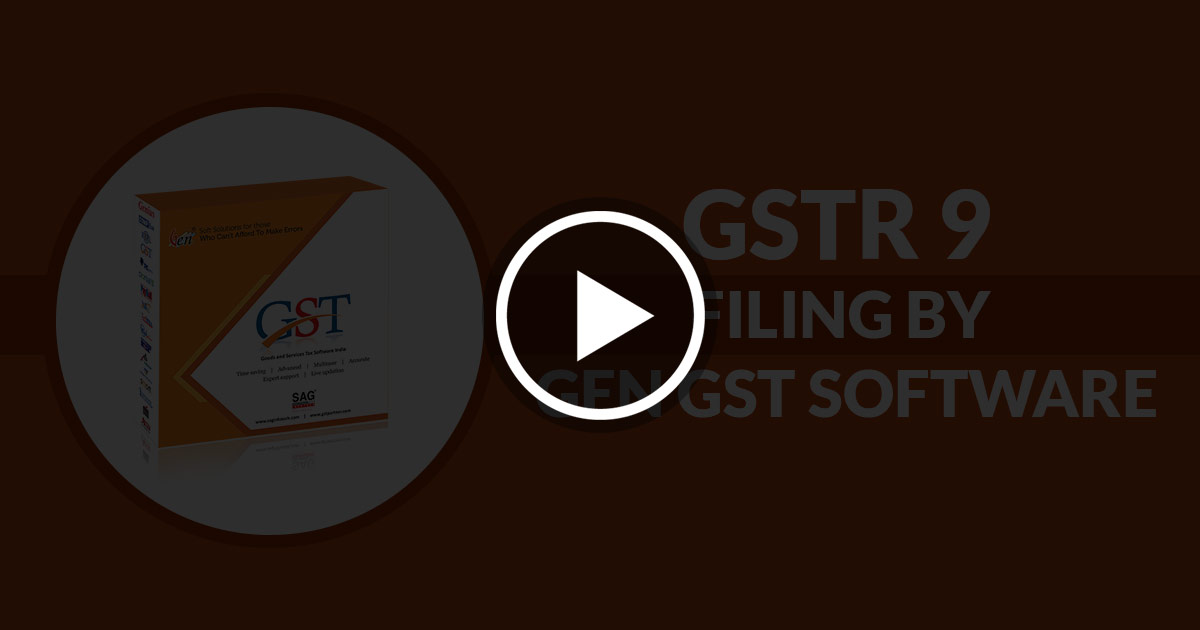
The government has recently extended the deadline of annual return filing under the Goods and Service Tax (GST). This is the fourth occasion when the government has made the extension decision for the due date of return filing under GST. On this matter, various GST experts have said that even the new date, i.e., November 30, won’t be good enough for various taxpayers to file their returns due to multiple confounding problems in the GST forms.
For taxpayers, having an annual turnover above INR 2 crore should file their annual GST return forms along with a GST audit, as per the provisions of GST legislation.
Till July 1, 2019, three years have passed of GST implementation in the country, yet the tax filers have been unable to file their GST returns, even for the first year.
The biggest pain point for the taxpayers till date is that annual return form, i.e., GSTR-9 asks a lot of information from them. On the other side, providing such information in monthly or quarterly return forms, i.e., GSTR-1 and GSTR-3B is not mandatory for taxpayers. Thus, the taxpayers find it extremely difficult to enter all such information correctly.
One of the tax experts at Dhruva Advisors, on this topic, said, “GSTR-9 is nothing but complexity and confusion galore.”
He further said, “The complexity starts with the level of details required, despite the fact that most of these were waived for monthly return filing. For example, the break-up of credit into input, input services and capital goods, or the break-up of reversals type-wise, reporting of ineligible credit, which may not have been captured in the financials.
“The values derived from the system does not always match with the books and a lot of time is wasted in trying to match them, with the only conclusion that it cannot be done.”
It is also evident that a lot of data discrepancies exist in various GST forms required to be submitted from taxpayers end. To add more, the complexity faced in GST annual return filing in itself is a big issue considering the fact that it requires information from the taxpayers, which is against the GST laws itself.
Sharing opinion on this matter, another tax expert from PwC India said, “The manner in which the said information is to be provided is quite complicated. Although some of the aspects have been clarified by the government on this, still there are open issues which need clarity.”
The tax expert at PwC India, further quoted, “There is a need to provide HSN classification for services at a six-digit level whereas the GST law allows companies to maintain the same at a four-digit level as well. Hence, companies don’t have this six-digit classification available with them. The government should allow companies to report HSN at the four-digit level.”
Complex GST Requirements
The annual GST return form also instructs the taxpayers to provide details of the transactions that are not attracting GST. Further, when it comes to discrepancies, the power also lies in the hands of the government. The companies are not allowed to claim an input tax credit (ITC) if claimed before during the given year. On the other hand, the government can ask for more tax from companies if required. This shows major flaws and disparities in the existing GST annual return filing.
On this topic, the deputy manager at Taxmann said, “The annual return requires the details of all those transactions in respect of which no GST is payable during the relevant period, which makes the entire process more complex. No additional ITC can be claimed in GSTR-9, though additional tax if found to be payable while reconciling, must be deposited with the government in cash.”
He further suggested that the complex structure of annual return filing is the primary reason who most of the taxpayer’s businesses are afraid to file their returns. The return filing process does not aid with GST laws, and there is also no such provision present in the GST legislation to rectify/improve the annual return filing process.
Read Also: How to File GSTR 9 Easily Via Gen GST Software Version 2.0?
Some tax experts also argued that for small taxpayers who do not hold the separate book of accounts and don’t have information split as per multiple GST registration are the ones who are finding it extremely difficult to prepare GSTR-9.
To make things easier, the government should allow the taxpayers with a turnover less than INR 5 crore to report GSTR-9 on an aggregate basis, instead of GSTIN-wise, the tax experts suggested.










